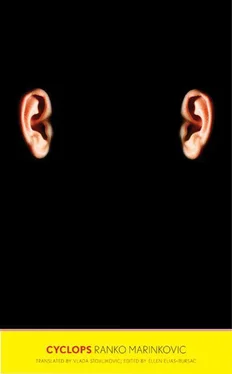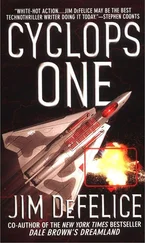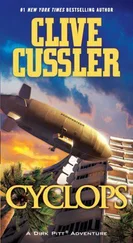“Was she drunk?” Melkior was seeking an excuse for her. He remembered Enka. I’ll call her.
“Drunk, infatuated, the lot. She asked him to take her home. He spent the night.”
“He did not!” the joyful truth flew out of Melkior, chirping like a bird.
“Are you sure?”
“Positive. And another thing, I think very little of it is true. Ugo slept at home last night. I saw him.”
“Yes, well, whether you saw him or not, don’t be jealous, my dear Eustachius. Your turn will come. Mine won’t. Fate has made me the gift of The Great Solitude. A large cloak in which I don’t even have a flea for company. The hermit. Leone Eremita. The purist. Vox clamantis. Leopold by name, called Poldy. Even Polda, by the closer among my drunkard friends. And thus we arrive at the stable of the mammal Thénardier. Let us take a seat, Eustachius old son. Mammal Thénardier, two shots, shot to shot. As for the rest, let’s leave it to technology. To the various telegraph wires and high voltage. Known under the important name of cables. Especially electrical cables!” Maestro gave a derisive laugh. “What do you think, Eustachius, is there a telegraph line between the Vatican and the Kremlin? A secret line. Underground. Collusions, eh? If I could manage to dig it out somewhere, what a message I’d have, for them both! From the Carpathians.”
“Why the Carpathians, of all places?” But Melkior was thinking of Enka, defiantly, I’ll ring her just to spite the bitch …
“The word is historical. Also, the Carpathians are halfway between. I looked them up on the map. But it was the word itself that took my fancy to begin with. ‘This is Leone Eremita, speaking from the Carpathians with the following message for the Vatican and the Kremlin,’ eh? Then I would snap the wire in half and tie a cat to each end and let them yowl in the bastards’ ears! Animal Thénar-dier, two shots, shot to shot.” Then he whispered to Melkior, confidentially, like someone revealing a secret, “This Thénardier fellow is a new species of mammal, they don’t study him in school, but they will. By the way, look how we stretched his left ear for him last night. You can tell the difference at a glance. Did you measure it, Thénardier? It’s as red as a ship’s portside light. For nighttime navigation.”
“Well, you got one across the snout, too.” Thénardier parried with a nervous grimace.
“The Batrachomyomachy. God, how we croaked!”
The sodden, slimy cigarette in his mouth had gone out. He sucked at it in vain. No go.
“Thénardier! Match!”
“At your service, dreaded Pharaoh!” and he lit Maestro’s cigarette with a chamberlain’s submissive gesture. A ritual.
“After ‘Pharaoh’ say, ‘life — health — power,’ you beast! It’s what people said to pharaohs, ‘onkhu — uza — sonbu.’ That’s ancient Egyptian,” he explained to Melkior. “And now begone!” Maestro dismissed Thénardier with a pharaonic gesture.
“Ancient Egyptian! Not surprised, Eustachius? Think I faked it?”
“No, I really wonder how …”
“I used to study it,” Maestro announced boastfully and poured some brandy down his gullet. Opening the gap-toothed mouth, cooling the heated gorge. “They had social poetry, too. The ancient Egyptians, long before the Kharkov school! ‘I saw a smith toiling with hammer at his forge by the fire; his fingers like a crocodile’s, filthy as fish from the Nile.’ Then there’s the one about the cobbler: ‘The cobbler, a wretched fellow, is in truly poor condition, — if he didn’t gnaw his leather he would die of malnutrition.’ I am quoting from memory, in rough translation. And the machinists today, they think they invented everything. The cult of the machine! The pre-posterousness of it! The petrol-fumed inspiration! Their Pegasus a Ford, their Muse, Miss Sonja Henie, the most ridiculous nose in the world! What poetry was ever conceived in an automobile or on-board an aeroplane, that’s what I’d like to know! The mollycoddling of one’s behind! Where were the power shovel and the bulldozer when Cheops was erecting his pyramid, when Pericles was building the Acropolis? When Socrates was making fools of people all over Athens? Tell me, am I overstating it?”
“Not at all. Only—”
“All right, say it: Progress! Well, Progress is welcome to pass me by. I’m staying put! Let it rush, let it fly! I, a common biped, walk on my two legs, pleased to feel the Earth beneath my feet, happy to be treading on it, treading on it, treading on it!” and he fell to pounding the floor with his feet, enraged, even hateful, “the damned old bitch that birthed me only to swallow me up again! Using my material to make a pig, a hedgehog, or simply a head of lettuce to be eaten by an overweight woman on a diet. It’s enough to drive you mad! While they fly, they flutter, they are in such a rush. To reach where? Whereto, engineers, locksmiths, mechanics, drivers?”
Maestro spread his arms wide, asking his question around the empty bar room in a kind of despair.
Thénardier, arranging bottles along his altar aided by his two ministrants, tittered hee-hee-hee, savoring his morning fun with pleasure.
“Let’s have the poison, you bloody sophist! And stop smirking! Margaritas ante porcos,” he communicated to Melkior, shaking his head resignedly. “It was the likes of him who gave the hemlock to Socrates. And what will they give me? The juice. Electricity. Ho, ho, ho,” Maestro launched into a fit of mad, frenetic laughter. “Power transmission line … ho, ho, ho … at high voltage … ho, ho, ho. Oh yes, at high voltage, right enough. Attention! Mortal danger! And on the pylons, ever see it? They’ve painted the old skull and crossbones, as on a bottle of poison. As at a chemist’s: I would like a pylonful of high voltage please. I have a mind to kill, ho, ho, ho …”
“Nevertheless, mankind has greatly benefited from electricity,” said Melkior mechanically, just to assert his presence. So she did let Ugo … He may have been going home to sleep afterward. He was late going back, he had been with her.
“Mankind? What mankind?” Maestro was aroused in earnest. “There are lots of different mankinds. Were not the ancient Greeks mankind? In what way did Aristotle suffer by having no electricity? He did know about rubbing amber, but he held that in utter contempt. Rubbing indeed. He had more important things to think about than rubbing. Would Dante have written better poetry under a frosted-glass bulb? If Leonardo had needed any electricity he certainly would have set some wheels spinning to get the sparks flying. He built all kinds of machinery, his designs have survived, he’d have found it a cinch to … And yet he painted that perfidious smiling femina , heh-heh … Smiling there, the little beast of a female … I have her back at home, a first-class reproduction, you’ll see it when you come by. Ah, you’ve never been to my place, now have you? You’ve definitely got to come by one day … What am I saying, one day? You’ve simply got to come for a bit of peaceful conversation. It’s essential. Only I think you ought to know I have no electricity. High voltage runs outside past my house, a long-distance trans-mis-sion line even, right under my window, with the old oil lamp guttering inside! Ha-ha, how do you like that? I ignore the terrible force coursing past. Be on your way, you potent nonsense, and leave me be, I have no use for you!”
“So, Maestro, do you hate all forms of energy or just electricity?” Maestro seemed to have sensed the irony in the question: he gave Melkior a suspicious look with one eye — the other being filled with a smoke-induced tear — and replied disdainfully:
“I hate nothing. I merely reject the superfluous.”
Читать дальше












